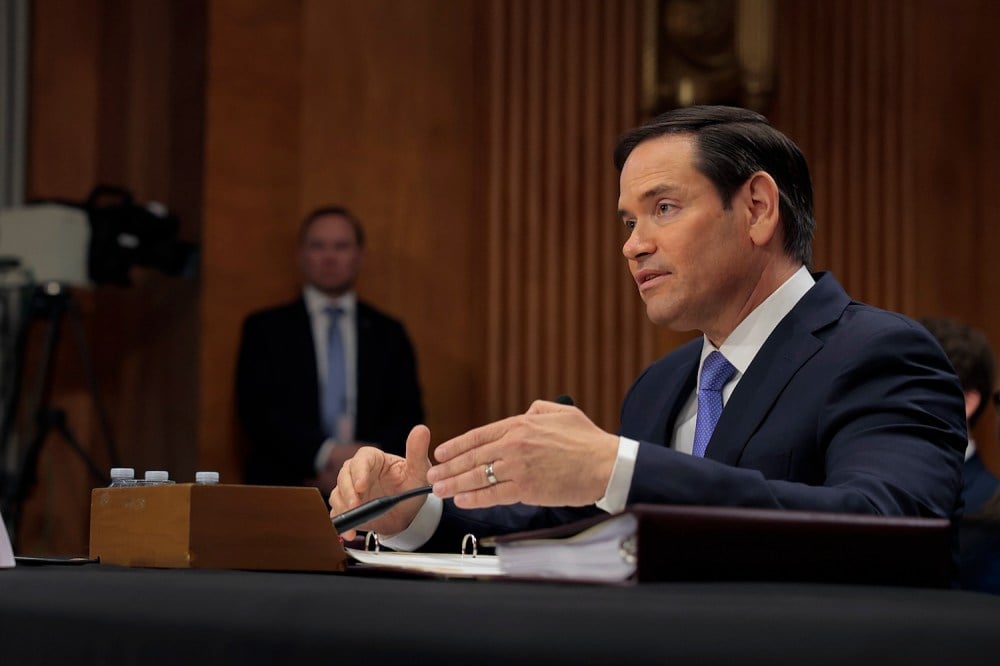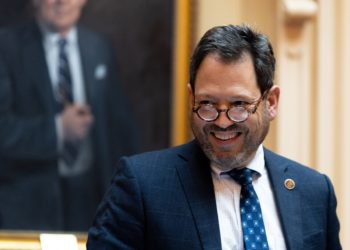On May 20, U.S. Secretary of State Marco Rubio, who also currently serves as acting national security advisor, national archivist, and administrator for the U.S. Agency for International Development (USAID), faced three hours of sometimes contentious questions from the Senate Foreign Relations Committee, a congressional panel that he used to be on but now views as quasi-adversarial.
Rubio started on a jocular note, expressing his honor to testify as national archivist, before the committee chair, Sen. Jim Risch, asked him to hew to the biggest of his four jobs. “OK, well, we’ll focus on State today,” he said.
The questions broke down predictably along party lines, with paeans of praise from Republicans and tough questions from Democrats on the committee. Rubio generally acquitted himself well, showing a thorough grasp of foreign affairs and most of the issues in his portfolio. Yet when it came to explaining how the policies he was defending fit with his previously espoused views and moral stances, he struggled.
Rubio, who was confirmed as secretary of state in a 99-0 vote, has managed to alarm former colleagues who voted for him in a few short months.
“I have to tell you directly and personally that I regret voting for you for secretary of state,” Sen. Chris Van Hollen told him bluntly. Rubio fired back, saying, “Your regret for voting for me confirms I’m doing a good job”—a response Van Hollen slammed as “flippant.”
Sen. Cory Booker, a former close colleague of Rubio’s and a potential Democratic hopeful in 2028, repeatedly addressed him casually by his first name before correcting himself, but they had a cordial exchange.
Rubio faced critical questions from Democrats on a number of issues: The Trump administration’s preemptive surrender to Russia over its war in Ukraine, continued atrocities in Gaza and a lack of aid deliveries, the mismanaged rivalry with China, the haphazard restructuring of the State Department and gutting of USAID, the incipient or ongoing civil wars in Syria and Sudan, nuclear talks with Iran, and the resettlement of white Afrikaner farmers in the United States.
Rubio reaffirmed what is quickly hardening into a Trump administration position as talks with Iran over that country’s nuclear program stumble forward: that Iran cannot enrich uranium at all. It’s a stance that could make or break any diplomatic settlement, but Rubio offered no olive branch.
“It is our view that they want enrichment as a deterrent,” Rubio said.
It’s clear that many of the Democrats who gave Rubio their unconditional support as Trump’s first confirmed cabinet pick have second thoughts—not about Rubio’s qualifications, dedication, stamina, or knowledge, but about his subservience to a presidential agenda that does seem at odds, in almost every way, with the positions he championed in his own time in the Senate and on the committee.
Sen. Jacky Rosen asked Rubio about just that. How did a man who, as a senator, vigorously defended foreign aid, women’s rights, and U.S.-backed international efforts to develop and deploy vaccines shift course so abruptly?
Rubio replied that he, and the Trump administration, are making foreign aid more streamlined and responsive, and that U.S. efforts to support vaccination work overseas continue as before. In reality, however, the withdrawal of U.S. funding for the Gavi vaccine alliance could put millions of lives at risk.
Sen. Tim Kaine’s questions about the decision to offer refugee status to white South African farmers can stand in for the rest of the session. Kaine asked why the United States offered protected status to prosperous white farmers, whose farms are ostensibly under attack even though the South African agriculture minister is an Afrikaner, while denying any refugee program, ever, for black Africans.
“There are a lot of sad stories,” Rubio said. “There are millions of people around the world, and they can’t all come here.” White farmers, he said, were a “subset” of people that were easier to vet for admittance into the United States.
The post Rubio Defends Trump’s Foreign Policy—and Himself—on the Hill appeared first on Foreign Policy.




